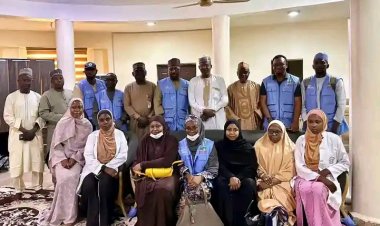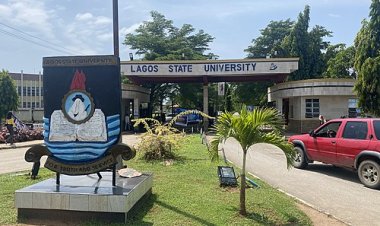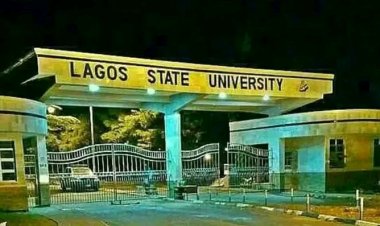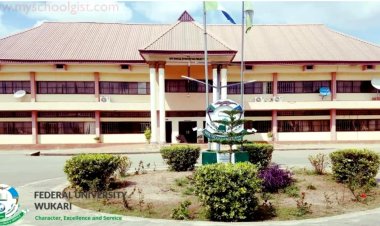Orientation Exercise: MOUAU VC, Resource Persons Task Post Graduate Students to Develop Invaluable Researches to Improve Society
The Vice-Chancellor, Michael Okpara University of Agriculture, Umudike (MOUAU), Prof. Maduebibisi Ofo Iwe has advised new postgraduate students of the university to embark on invaluable research to foster a better society.

The Vice-Chancellor, Michael Okpara University of Agriculture, Umudike (MOUAU), Prof. Maduebibisi Ofo Iwe has advised new postgraduate students of the university to embark on invaluable research to foster a better society.

Myschoolnews reports the Vice-Chancellor gave the advice at the second Orientation Programme of the University’s Postgraduate School held at ICAN Hall of the University on Wednesday.
Prof. Iwe who was represented at the occasion by the Deputy Vice-Chancellor, Academic, Prof. Udo Herbert, congratulated the students on having established themselves as brilliant thinkers in their respective disciplines, taking monumental decision towards advancing their academic career with the University. The University helmsman noted that the pursuit of higher education is a monumental commitment and catalyst for intellectual growth and personal development towards creating a positive impact in society.
Prof. Madu Ofo Iwe described the Michael Okpara University of Agriculture, Umudike ‘as a diverse and intellectually stimulating community with a tripodal mandate of Teaching, Research and Extension in Agriculture and Allied Disciplines’. While intimating the students on the twelve (12) core values of MOUAU, Prof. Iwe maintained that the University takes immense pride in the rich tradition of nurturing talents, research collaboration, creativity and intellectual innovations so as to solve complex global challenges. According to the VC, postgraduate studies demand a higher level of dedication, perseverance and intellectual rigour. He encouraged the graduate students to embrace the challenges and take advantage of the human and material resources and support services to conduct research that would contribute to the advancement of knowledge in their respective fields and in societal development at large.
In his remarks, the dean, Postgraduate School, Engr. Prof. Ogbonnaya Okoro said the orientation programme is an enlightenment effort geared towards inculcating in fresh postgraduate students the necessary and relevant procedures, rules and regulations as well as motivate them into high level productivity that emphases efficiency, time management, speedy graduation and less human mistakes due to lack of information. He maintained that MOUAU Postgraduate programmes are highly subscribed due to the quality of research, dedicated lecturers/supervisors, the eco-system friendly environment and cordial relationship that exist between the students and the lecturers.
Prof. Okoro extoled the virtues of the Vice-Chancellor who he said frowns seriously at extortion, sexual harassment, examination malpractice, intimidation, cultism and other social vices that are inimical to the academic well-being of the University. He equally used the exercise to give an overview of the postgraduate school, its history, functions, rules and regulations.
On their separate presentations during the plenary sessions, the resource persons including the Director of Academic Planning, Prof. J. O. Echeme; the Director, Centre Molecular Bio-Sciences and Biotechnology (CMBB); Prof. I. I. Ijeh, and Prof. P. C. Ojimelukwe exposed the students to a broader understanding of research processes and tools required for effective research, funding opportunities, networking and collaborations, as well as support services to the students such as library resources and grant proposal writing, among others.
The Deputy Dean of the Post Graduate School, Rev. Cannon Prof. K. C. Igwe and the Secretary of the PG School, Ann Ojeh, in their separate speeches, addressed the students on various areas including conflict resolution, complaints and privileges relating to the postgraduate programme of the University.
The exercise was attended by some principal officers of the University, deans, and deputy deans of various colleges, directors of some units, Heads of Departments, and postgraduate students.

 Emmanuel Eze
Emmanuel Eze 



